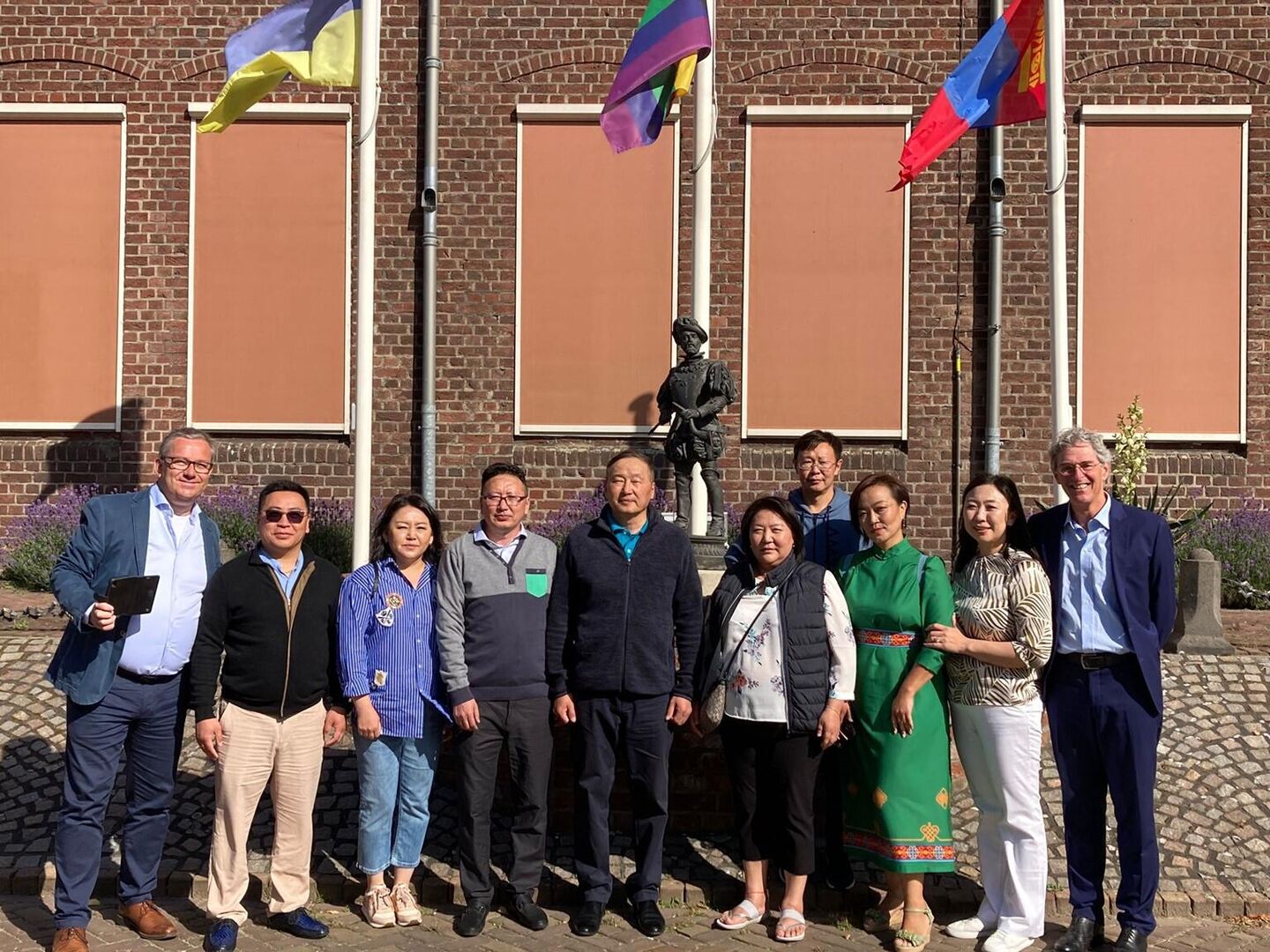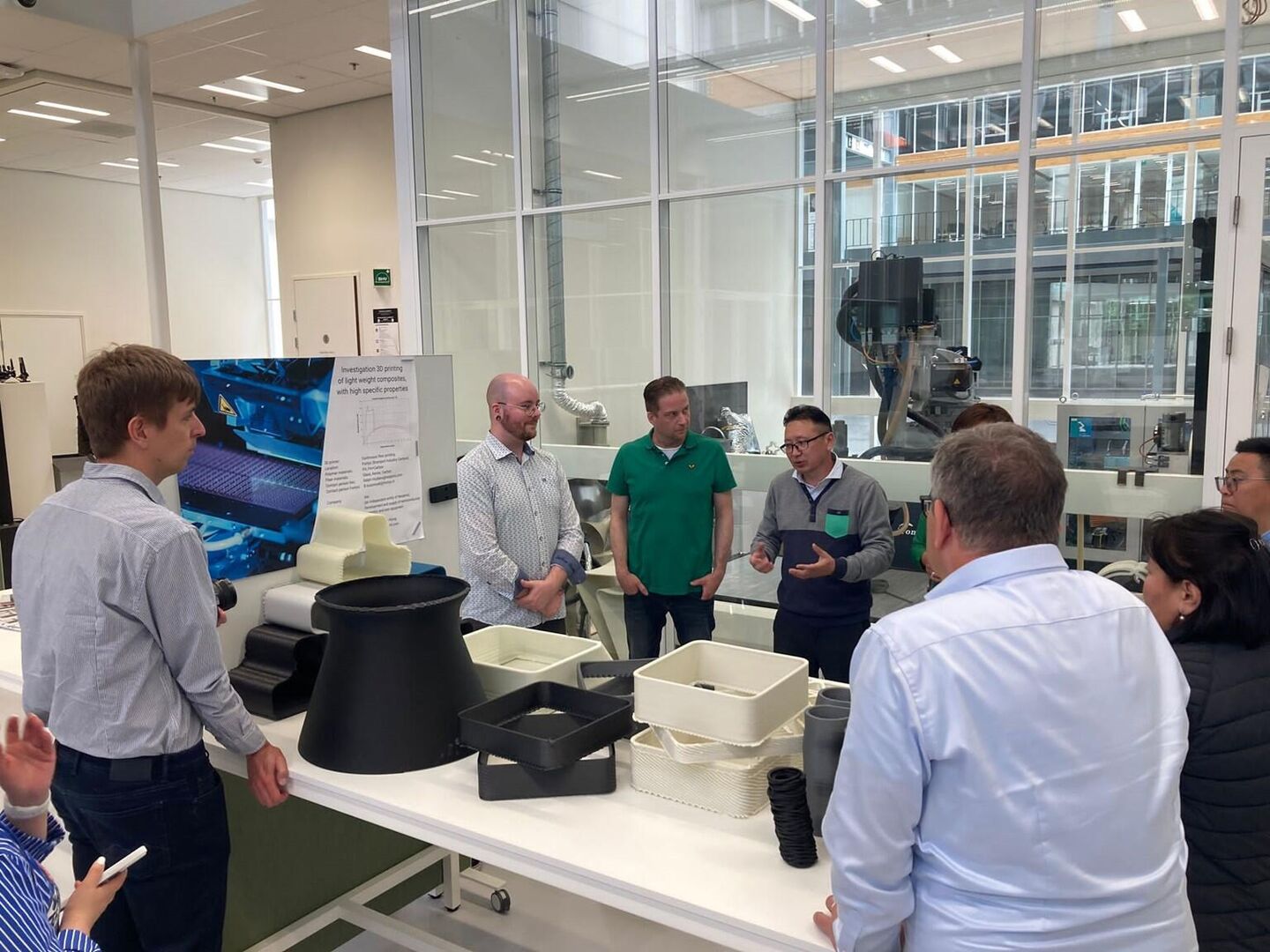

DECP organizes study trip for Mongolian company
In June 2022, two groups of staff members of the Mongolian mining company Erdenet visited three training institutes in the Eindhoven region. DECP organised a study trip for the two groups in collaboration with its partner MONEF, the Mongolian employers' organisation. The purpose of the visit was to share experiences in the field of Skills Development: the development of vocational skills. It was emphasized that cooperation between schools and companies is a crucial condition for mutual reinforcement.

Specialists of the Fontys Centre of Expertise HTSM (High Tech Systems & Materials) explain 3D printing development
Skills development is considered the key to productive employment worldwide. Therefore, it is an important means of increased productivity, private sector development, inclusive economic growth and poverty reduction. This requires a better skilled and more flexible workforce.
Erdenet Mining Cooperation operates one of the largest mines in Asia. The company produces 125,000 tons of copper per year. Well-trained staff is essential for growth and the delivery of consistent quality. DECP has had a good relationship with the Mongolian employers' association MONEF for many years. Through MONEF, Erdenet has requested DECP to organize a study trip.
Skills Development is one of the focal points of DECP's support of MONEF. MONEF, in collaboration with the national government, is trying to professionalize the quality of the Mongolian vocational education system by establishing and developing a National Competence Centre.
In June, two groups totalling 24 people visited three Dutch vocational training institutes in the Den Bosch-Eindhoven region in the province of North Brabant. This region is specialised in advanced (high tech) machine manufacturing.
The guests first visited the Koning Willem I College in Den Bosch, the capital of North Brabant. This school for secondary vocational education and adult education offers around 250 training courses for the labor market meeting the competence needs of the companies in the region. The school takes the labor market perspective into account and cooperates closely with the business community to this end. The Mongolian visitors where particularly interested in finding practical solutions for narrowing the so-called “Skills Gap”: schools in Mongolia are not always capable to prepare students sufficiently for the knowledge, skills and professional attitude that the business community needs. The way in which the Koning Willem I College succeeds in offering professional qualifications in a practical way, by cooperating intensively with company decision makers, impressed the Mongolian visitors in particular.
Next, a visit was paid to the Mikrocentrum in Veldhoven, located in the urban zone of Eindhoven. This part of the province is called ‘Brainport’ due to the highly developed networks of cooperating companies -both manufacturers and suppliers- knowledge institutes and governmental bodies.
As a private and independent knowledge- and network organisation, Mikrocentrum supports the high-tech machine and systems manufacturing industry. Mikrocentrum offers 170 (technical) courses and organises annual trade fairs, business events and themed meetings. In addition to these activities, they offer companies a membership to the High Tech Platform, which consists of 600 paying members. In addition, Mikrocentrum works closely together with a large network of industrial organisations, (semi) governmental bodies and knowledge- and educational institutions. Mikrocentrum only hires specialists from participating companies in this strong network and thus contributes to strengthening the ecosystem.
Finally, the Mongolian delegation visited Fontys University of Applied Sciences and more in particularly the Centre of Expertise for the High Tech Systems & Materials. This Centre is located on the BIC Campus. (Brainport Industrial Campus). DECP published an extensive article about this last year; Development of ecosystems. A visit to this campus was particularly interesting because on this campus many companies and the entire vertical training column from VET education to academic education have been set up and implement educational development, research and product and application development together. This visit literally showed once again that working together is the key to economic growth and success.
The study visits were highly appreciated by the guests from Mongolia, which was also reflected in the extensive evaluations that DECP received some time afterwards.
Later this year, experts from DECP will visit MONEF to discuss what MONEF can do to develop some economic sectors, by encouraging concrete collaboration with stakeholders such as schools, trade unions and governmental bodies.
For further reading:
Entrepreneurial ecosystems in emerging countries
Skills development, a shared responsability of government and companies
